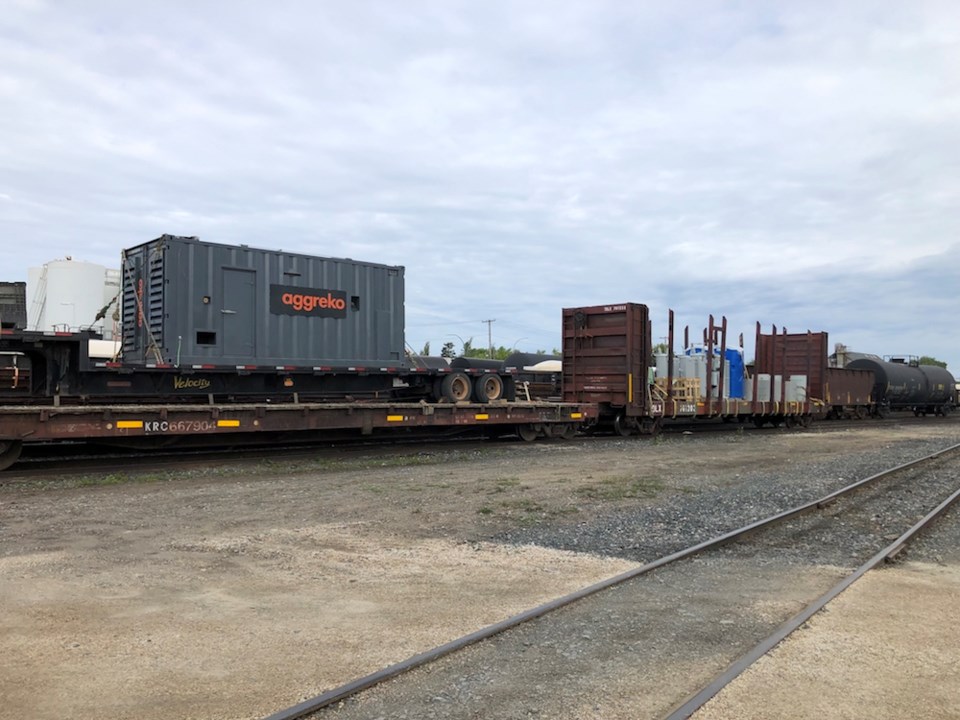Manitoba Hydro said Aug. 17 that crews have energized two large generators in Pukatawagan that will enable residents to return home while permanent repairs are made to the community’s electrical system.
The 1,500-kilovolt generators were brought into Pukatawagan, also known as Mathias Colomb Cree Nation, by train, along with many other materials to assist in the restoration of the community’s connection to Hydro’s power grid. These materials include new electrical poles, spools of power lines, insulators, guy wires, specialized vehicles, transformers and fuel. A total of 27 train cars were needed to transport all the material to Pukatawagan.
Residents of the community, which has a population of around 2,000 and does not have year-round road access, were evacuated as a result of a wildfire that threatened their safety and also damaged 77 poles supporting power lines feeding the community.
“A lot of people worked really hard to make this happen,” said Hydro’s rural operations director Cyril Patterson in an Aug. 17 news release. “There’s lots left to do out there, but we’re happy community members can go home while we finish the job.”
MCCN’s chief says residents are anxious to return.
“Being in our Treaty Six territory is the comfort of home … we feel settled,” said Chief Lorna Bighetty. “Installing the generators means that essential services — such as health, water and sewer, service to our homes, access to the outside world through internet services and other media, are available again. We will rest at night and rise in the morning knowing that our families are safe.”
Permanent restoration of power will require repair crews to set new poles in and around steep cliffs, march and rock.
“There are, literally, a lot of moving parts here,” Patterson said. “We’ll use helicopters to fly equipment and crews to the fire-damaged areas and fix those lines.”
Hydro says it is giving regular progress updates to MCCN leadership and other interested parties such as Indigenous Services Canada, the Manitoba Wildfire Service, and the Canadian Red Cross, which is responsible for evacuees.




